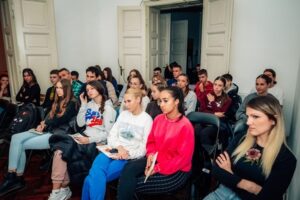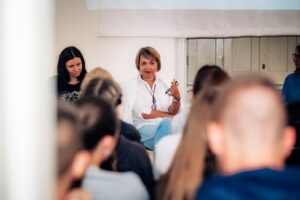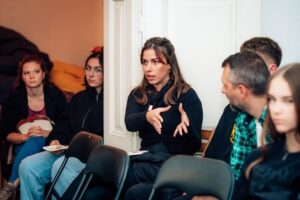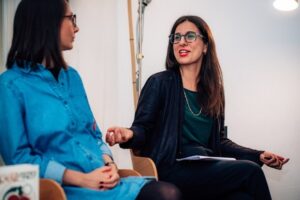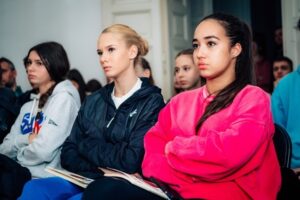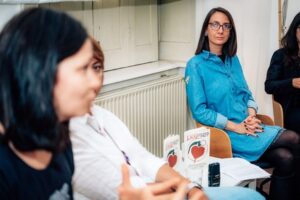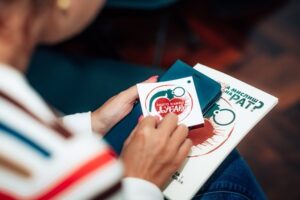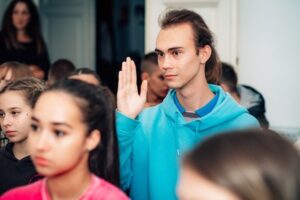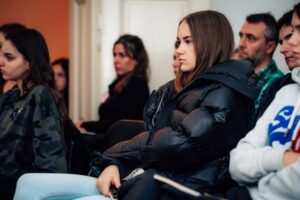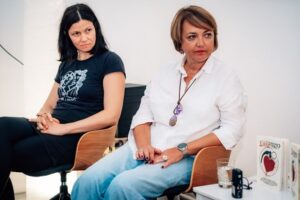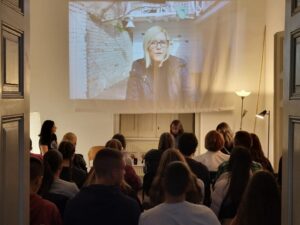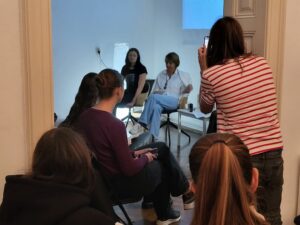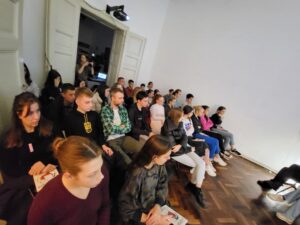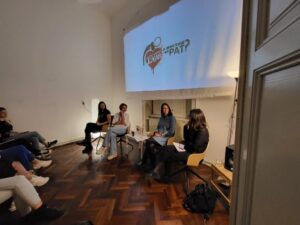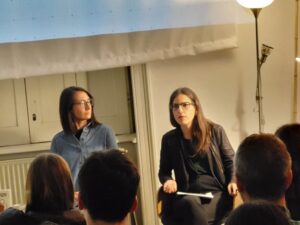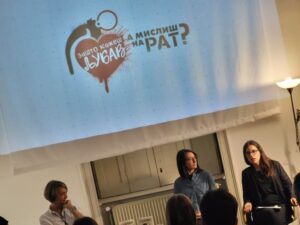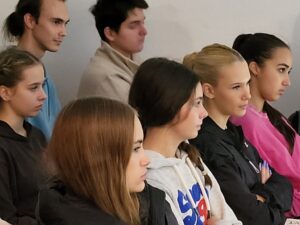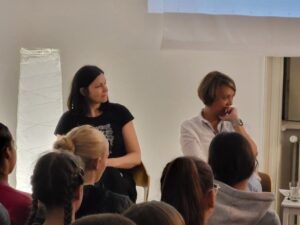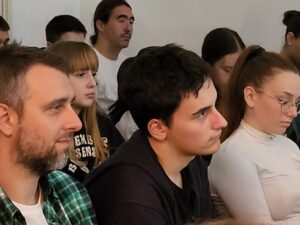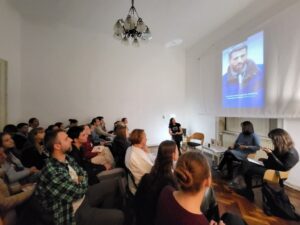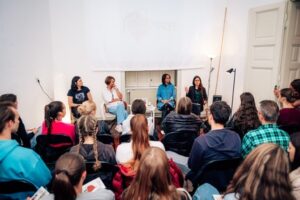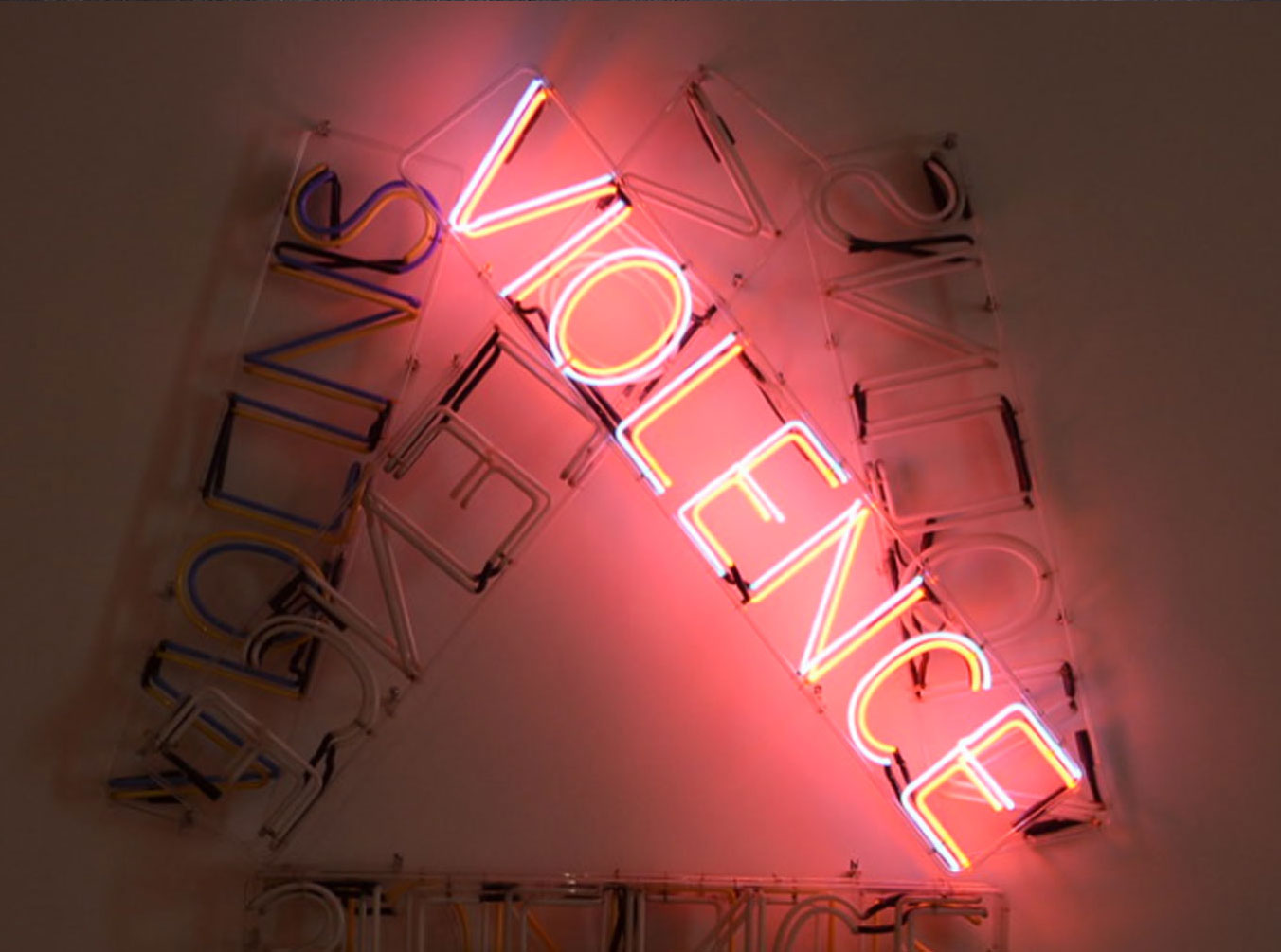
WHY DO YOU SAY LOVE? Normalization of Violence
The discussion series "Why Do You Say Love?" organized by the Krokodil Association from Belgrade continues in Subotica on Friday, October 4, at 6 PM at the Klara and Rosa space (Petefi Šandora 15). This time, we will map the hidden social influences that lead to an increase in violence among young people and discuss how the promotion of ethnic, gender, sexual, and other differences affects peer violence, as well as how the pervasive normalization of violence in society impacts mental health, especially in adolescents. We will also talk about how activism can help us respond to these phenomena and why activists can be particularly vulnerable regarding these issues.
.
Participants include: Dr. Jasminka Marković, a child psychiatrist and psychotherapist; Aurelija Đan, a psychologist and psychotherapist; Gordana Vukov Ciganjik, an activist and cultural worker, co-founder of the Klara and Rosa association, moderated by independent cultural manager Tamara Marković.
.
.
About the Participants:
.
Dr. Jasminka Marković is a child psychiatrist and psychotherapist, founder of the Krug clinic in Novi Sad. She completed her undergraduate studies, master's degree, and doctorate at the Faculty of Medicine in Novi Sad. She has extensive clinical experience in diagnosing, pharmacotherapy, and psychotherapy for children, adolescents, and families. For over twenty years, she worked at the Department of Child and Adolescent Psychiatry at the Psychiatry Clinic, Clinical Center of Vojvodina in Novi Sad. She also worked for seven years at the Faculty of Medicine in the Department of Psychiatry and Medical Psychology, where she was appointed as an assistant professor. She is a member of the working group of the Ministry of Health for improving work with children and families of children with autism spectrum disorders and a member of the presidency of the Society for Child and Adolescent Psychiatry and related fields of Serbia (DEAPS).
Her areas of focus include child psychiatry, psychotherapy for young people and adults, education, and supervision in the field of mental health for young people.
.
Aurelija Đan is a psychologist and psychotherapist with extensive experience working with marginalized groups, including the LGBT community, refugees, and women who have experienced violence. She also holds a master's degree in gender studies, obtained from the Central European University in Budapest. She worked at the Belgrade Center for Security Policy, addressing the issue of youth safety, and has collaborated with international organizations on projects supporting vulnerable populations. Today, she is dedicated to psychotherapy, working with individuals and groups to improve mental health, as well as supporting employees in stressful work environments.
.
Gordana Vukov Ciganjik is a graduate actress, activist, and cultural worker. She is a co-founder of the Klara and Rosa association in Subotica and one of the initiators of establishing the Center for Contemporary Culture and Arts.
Born in 1984 in Subotica, she graduated from the Gymnasium in Subotica and the Faculty of Dramatic Arts in Cetinje, majoring in acting. She has worked in the city’s cultural foundation, performed in theater productions, and created and led drama workshops for various age groups. She designs and implements various artistic and cultural projects.
.
As a starting point for our conversation, we will use the results of the "Research and Analysis of Hidden Influences on the Increase of Violence in Society in Serbia," authored by Srđan Hercigonja and Milena Berić, recently published by the Krokodil Association.
.
High school students from Subotica are invited to the event, and the first twenty who register via email at prijave@krokodil.rs will have the opportunity to participate in a dynamic one-on-one introductory session before the event, attended by the panel discussion participants that will follow. The idea is to create an ad hoc community atmosphere from the very beginning of the meeting, where everyone feels free to share their opinions and experiences.
.
About the Project "Why Do You Say Love but Think of War?"
The goal of the project "Why Do You Say Love but Think of War?" is to raise awareness about the dangers of the invisible influences spread by political actors that systematically legitimize extreme right ideologies to strengthen nationalist ideas among the broader population in Serbia, especially among young people. Three decades after a series of bloody conflicts in the former Yugoslavia, convicted war criminals, having served their sentences in foreign prisons, are slowly returning to Serbia, where they are welcomed and celebrated by the highest state officials and showered with media attention from pro-regime outlets. It is no surprise that many years after the violent breakup of Yugoslavia, people in Serbia still hold such distorted views regarding the negative legacy of the 1990s. Young people show a fundamental lack of knowledge about the wars and the violent breakup of Yugoslavia. Trapped in the in-between space between ethnonational and cosmopolitan identities, they are prime targets for exploitation and often serve as pawns in the hands of powerful decision-makers, tools used to promote retrograde, hateful policies, and openly glorify convicted war criminals. The promotion of hate speech and even direct incitement to violence—exemplified by murals, stencils, and graffiti—are, unfortunately, all too familiar and have contributed to the unprecedented levels of aesthetic-ideological pollution in our cities over the past few years.
.
The project "Why Do You Say Love but Think of War?" is supported by the Embassy of the Kingdom of the Netherlands in Belgrade through the MATRA program.
.
Art: Bruce Nauman (1941– )
VIOLINS VIOLENCE SILENCE (1981)
Tate Modern, Southwark, London, England, UK
.

